Homeschool terms, they’re the lingo of the educationally liberated. Can you talk like a homeschooler?
Homeschool terms are the talk of the autonomous.
The words of the willful.
Dialect of the independent.
Second breakfast speak.
Pajama-clad jargon.
When at home, do as the homeschoolers do. Right?
Whether you are new to homeschooling or just nosy, I’ve put together this list for you to laugh over or print out and memorize before co-ops start back up. Don’t know what a co-op is? Keep reading!
There’s a dictionary’s worth of homeschool lingo and vocabulary to share. It includes the things we say to our kids and terms we use that most outside of the homeschool bubble wouldn’t understand and the titles and nicknames we give each other.
Because within the homeschool genus we have several different homeschool species, each with their own unique verbiage. Admittedly, I am still learning new homeschool terms every year.
And we’re making new terms up as we go too.
For instance, in 2020 I coined… “old-school-homeschool“; which is a term I made up for those of us who homeschooled before it was mandatory and the title of homeschooling was kidnapped for a stint by remote learning.
Bu let’s start this list with some homeschool terms for the different types of homeschoolers. (i.e. homeschool species).
Homeschool Species
Traditional homeschoolers: Those that like to set up lessons, practice work, tests, and schedule their day and activities much like the brick and mortar schools, but with more snacks and possibly in pajamas. They often use a publisher’s boxed set of curricula and utilize standardized testing to gauge their success.
If you have an assignment tray setup somewhere for completed work to be turned in, or you schedule the days’ subjects by time slots instead of workload. You might be a traditional homeschooler.
This type of homeschooler often has a designated homeschool room, desks, inspirational posters and a least one map hanging on a wall. And though no one actually stays in their chair for any length of time, it’s nice to see it all put together and feel that, well at least it looks like we’re doing stuff!
This is how a lot of newbies fleeing the public schools start out homeschooling. I know. Because I used to be one.
Classical homeschoolers: The academic intimidators. They have these cool terms for learning stages; grammar, logic, and rhetoric. They are often memorizing speeches, dominating debates and their parents hope to be raising the next generation of scholars, doctors, and lawyers.
And they’re learning Latin like a secret language none of the rest of us can understand. Or maybe we tried and gave up….ahem.
If you can recite the Gettysburg address and secure a Toga with one hand for a class presentation on Socrates, you might be a classical homeschooler.
Charlotte Masonites: The beautiful homeschoolers. They like to journal. They read only the beautiful “living books”; which are books on topics in science, history, or any academic area that are written like a conversation or story to draw a reader in and make it come alive.
If your science notebook could be disassembled and marketed for wall prints at hobby lobby, you might be a Charlotte Mason homeschooler.
Unschoolers: The rebels of homeschooling. To those outside of homeschooling this title seems to say… WE DON’T NEED NO EDUCATION!
And in a way that’s exactly what it’s all about. Unschoolers largely shun organized education, curriculum, and age standards and instead go with learning based on a child’s interests and situational need for certain knowledge. They touch upon different academic disciplines as they dive into the rabbit hole; often checking out crates of books from the library each week.
If you’ve ever done math while shopping at Aldi or Costco, and tested Newton’s laws of motion while at an amusement park, you might be an unschooler.
Eclectic Homeschoolers: If you take any combination of the previous homeschooling species and mix them up really good, and then throw in some indecision and stuff we haven’t put a name to yet, you get eclectic homeschooling.
This is what we call ourselves when we just can’t decide exactly how we want to do things. We like a little about each of the other types, so we just do a bit of all of it. And make up some new methods along the way to fit each of our children individually.
Or maybe we just like to keep our kids on their toes and able to handle change well.
If you started out saying the pledge at least once a week before breakfast, tried learning Latin, journaled your way through history one year, and read a textbook the next, or switched curriculum 3 times in one semester, you might be an eclectic homeschooler.
Road-schoolers: Adventure homeschoolers. They are kind of a sub-sub-species. Because if you subscribe to any of the methods of homeschooling above, and put it on wheels, you get…road-schoolers!
Hippie Homeschooling. The whole family traveling the country in an RV and learning together. It’s so rogue!
If you’ve ever said, “That there’s an RV, Clark.” and meant it, you might be a road-schooler.
Homeschool Cousins
We can’t leave out our homeschooling cousins. They’re sometimes ragged on as not being real homeschooling because they lean on an institution for support. But nonetheless deserve a spot on our list of homeschool terms.
University model homeschooling: Sometimes they’re all called prep schools. “Homeschool lite”, I like to call them. Usually they follow the classical approach, but in a school setting 2-3 days a week and then they homeschool on the other days.
It’s great for parents that need a co-teacher or want an outside plan, schedule, guidance, and transcript for security.
Online-schoolers: often using a computer-based program monitored by the public-school system or paid-for private school. They’ve often just fled a failing school or bullying situation and they made a great decision for the safety and spirit of their child. Often this is just the gateway method into homeschooling.
If they stick with it long enough and venture out into the homeschool community, they’ll be raising chickens and baking kale chips in no time.
See, with all these different types of homeschoolers running around living and learning, it’s no wonder the general public probably thinks we’re a little weird.
General Homeschool Vocabulary
Now let’s look at some basic homeschool terms and lingo you might come across when dealing with any of the types of homeschoolers we defined above.
Curriculum: Simply a course of study. Printed, online, published or imagined. It can be created in a subject or grade level format. And since I started homeschooling, curriculum has become one of my favorite hobbies. I love looking for curriculum I don’t even need. And every spring a lot of us are so sick of what we’re currently using it becomes more fun to start picking out next year’s goodies.
Boxed Curriculum: One complete set of curricula designed to cover all subjects for one entire grade level, neatly packaged and ready to go. If you just want to push one button, order, unbox and learn, this is for you.
For us eclectic homeschoolers though, this type of product deprives us of our favorite part of homeschooling, curriculum shopping. The decision making would just be over too soon.
Which brings me to my next homeschool term…
Curriculum Junkie: one who consider homeschool curriculum shopping a sport. We can make it last for weeks filling and un-filling and refilling online carts on several different websites… bliss!
Sometimes time gets away with a curriculum junkie. Suddenly it’s 2am and what started as a search for grammar supplements ends up a search for the best book on engineering a castle from the middle ages. And burnt corneas.
Laminating Queens: When it all boils down to the basics, there are only 2 kinds of homeschool moms. Those who laminate everything and those who sell their curriculum or set it on fire at the end of each year.
Laminating queens laminate everything.
I think some would laminate their kids if it were possible to make them easier to clean. Some admit it is a soothing activity and they now have enough bookmarks to wallpaper their house.
Year-Round Homeschooling: It means summer school. October vacations. And finishing 3rd grade on Monday and starting 4th on Tuesday.
Co-op: Not a joint business venture, cause ain’t nobody getting paid. It’s a group of parents coming together to help each other teach core classes and some weird random subjects too.
Where you let some other kid’s mom or dad teach your kid Spanish while you teach their kid the proper “Care for Horses and Bearded Dragons”. Usually all kids’ participation is subject to parents’ participation. No one is sneaking out for a latte or a nap.
Double-up Day: When you do all of Tuesdays’ and Wednesdays’ assignments on Tuesday, so you can go to the movies on Wednesday. This works for any days of the week when you want to cram the have-tos to get to the want-tos.
Sun Days: Yes, two separate words. What we call the days too perfect to spend indoors, so we drop everything and head outside.
Umbrella Schools: not Mary Poppin’s academy where you learn the proper use and etiquette of a parasol or umbrella (though that sounds more appealing). But a school (mostly in name) that oversees homeschoolers and offers curriculum advise, scheduling, and transcripts, and ensures the fulfillment of state requirements while learning at home. More common in states with more regulations.
Copywork: a homeschool torture device disguised as handwriting and grammar practice.
Morning basket: A compilation (or basket full) of activities and discussions to start your day together. Possibly a short read aloud, art study, devotional, or craft.
We never get up early enough or pleasant enough to read poetry together. But we do start the day with an impromptu discussion or debate over current events at breakfast each day. See Pam Barnhill for the professional real deal on morning baskets.
Game-schooling: When you need a day off but don’t want to take a real day off, so you take a more hands-on approach with games… Monopoly for math and economics, scrabble for spelling, battleship for logic, twister for PE, and trivial pursuit for a final exam.
Dual credit: A class you take at college but put the credits on your homemade transcript. And hope they transfer wherever you end up as a “real college student.” Often allows homeschoolers to graduate high school with an associate degree.
Trivium: a cool word that describes the three stages of classical education.
Unit Study: this is when we pick a topic, say Christmas Around the World, and then beat it to death with reading, writing, watching documentaries, cooking related recipes, field trips, and art projects.
Nothing sucks the fun out of holiday like a well-intentioned homeschool mom with a unit study!
2nd breakfast: the meal kids get up and eat in the middle of their math work because… why not? You’re home. The kitchen is available. You need food for thought. This is a calling card of homeschooling.
It’s 2020. They really should make a movie: Second breakfast club.
Denim jumper: the customary dress of our founders who realized the value of dresses with pockets in sturdy fabrics. Now largely interchangeable with yoga pants and overalls.
Forced association: the homeschooler’s rebuttal and title for the type of socialization going on in brick and mortar schools. Such as when every student in a class is forced to give their classmates (bullies and all) a Valentine card. Sure, it’s in the spirit of friendliness, but it’s all orchestrated and completely insincere.
Twaddle: Wait… What?!
I know, right? Before you tell me to watch my mouth, let me say that this a Charlotte Mason homeschooling term. That’s right… the beautiful homeschoolers. It describes books kids shouldn’t be reading because they are just brain candy, without educational or spiritual worth. Just… twaddle!
Free range: like chickens, it’s where you let your kids run around, experience the world, and exercise their bodies and brains without constraint before you eat them. It’s organic parenting really…. only the freshest and wholesom-est ingredients. Where you know what’s in your kids.
Delight Led Learning: Learning what you like. See also interest-led learning.
Work boxes: A complicated system arranged with activities and lessons per subject a kid can do mostly on their own. Usually color coded, with sticky notes, rolling carts and a lot of it is probably laminated. Just saying…
Life-schooling: Learning by living and following the rabbit down the hole if interested. See also unschooling.
Homeschool Picnic: When you get to do all your work on the floor in a room alone, forbidden to come-out and separated from your siblings because you won’t quit annoying everyone for sport.It’s been proven that a child will not sharpen their pencil or crush ice into a glass until they’re sure it will make the most noise at the exact time it is guaranteed to send a sibling into orbit.
And last, and definitely the least of our worries…
Socialization: The dreaded word. It really is our word. A homeschool term. We own it. We get brow beat with it the most.
Its basic meaning is to interact with people of all ages in a respectful and engaging manner; which homeschoolers do quite extraordinarily. Especially in naturally occurring social settings, despite what the stereotypical homeschool stigma may be.
Because most naysayers won’t let it go until our kids are squared away in a classroom 8 hours a day, five days a week, 9 months a year…homeschoolers will always be wrong about socialization.
And so, we’re taking this word and turning it around. We’ll Socialize like a homeschooler!
To socialize like a homeschooler is to meaningfully interact as a family or individually, within your community not despite your personal values, beliefs, and goals, but because of them.


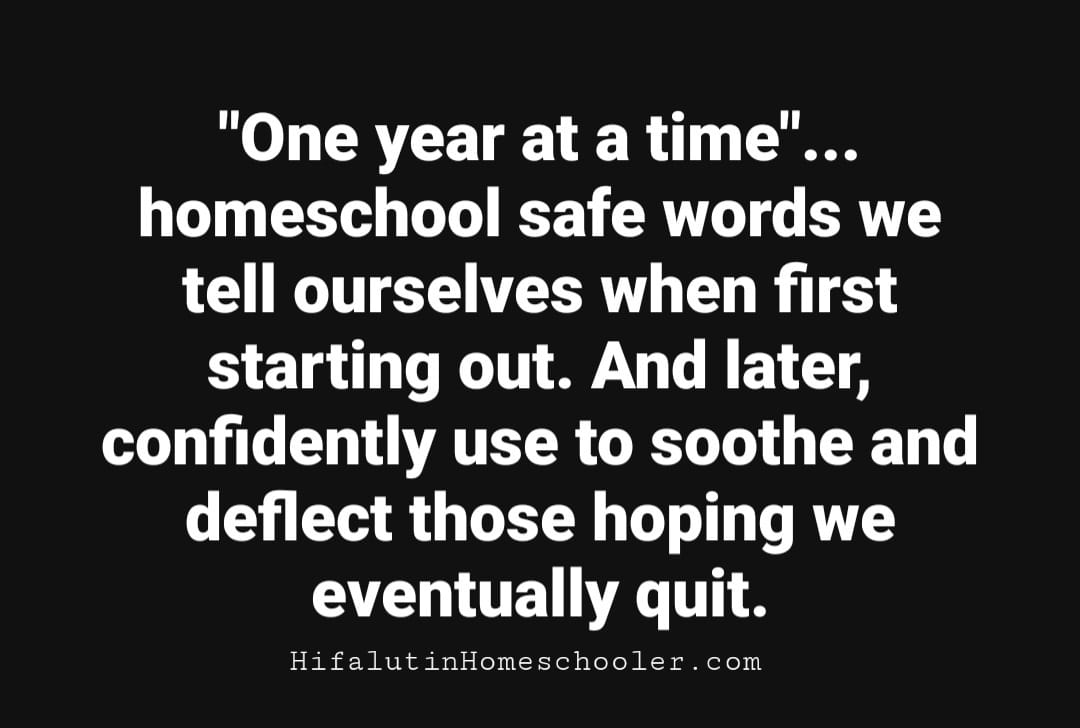
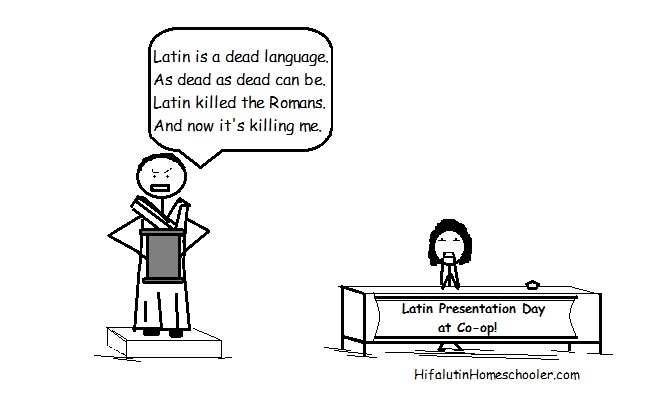

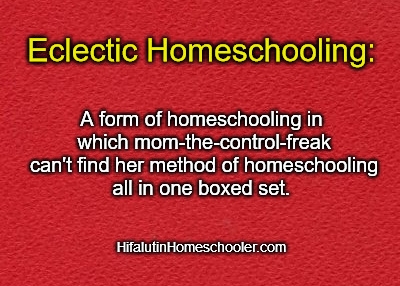
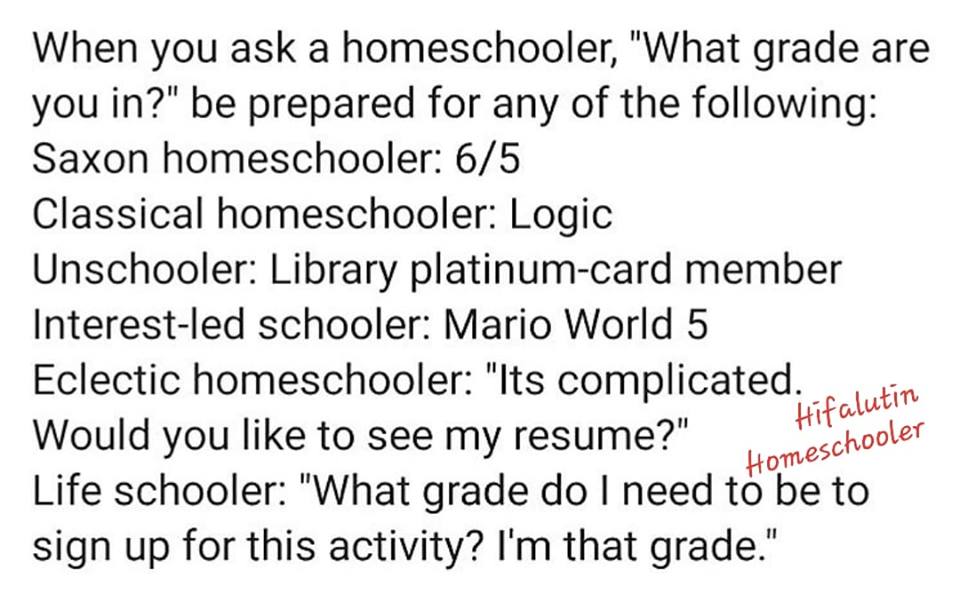

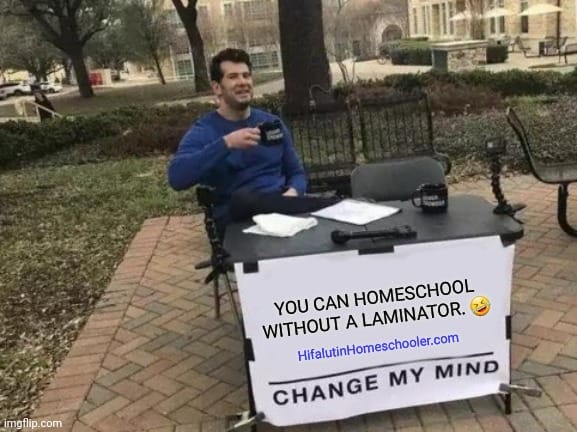
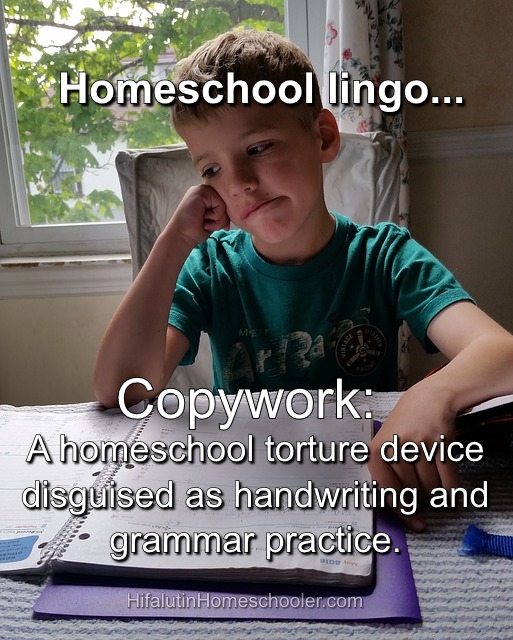
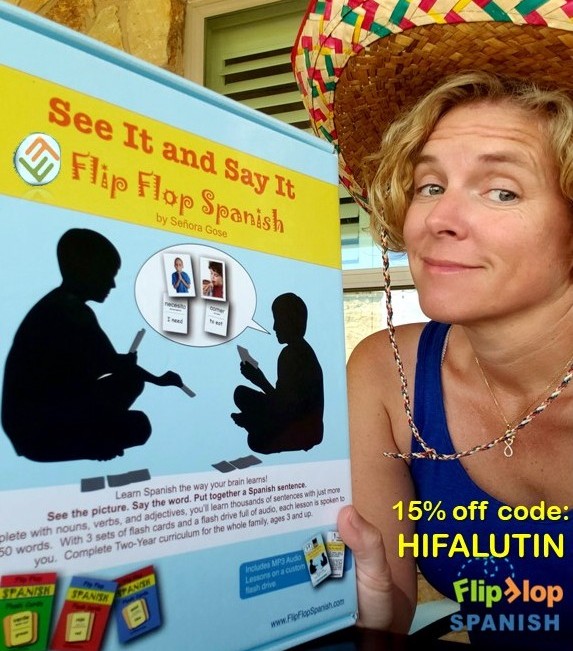
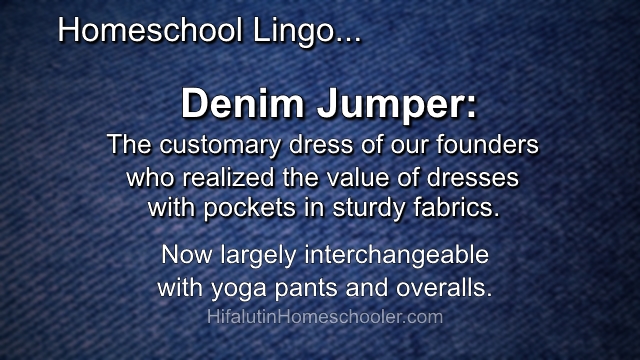
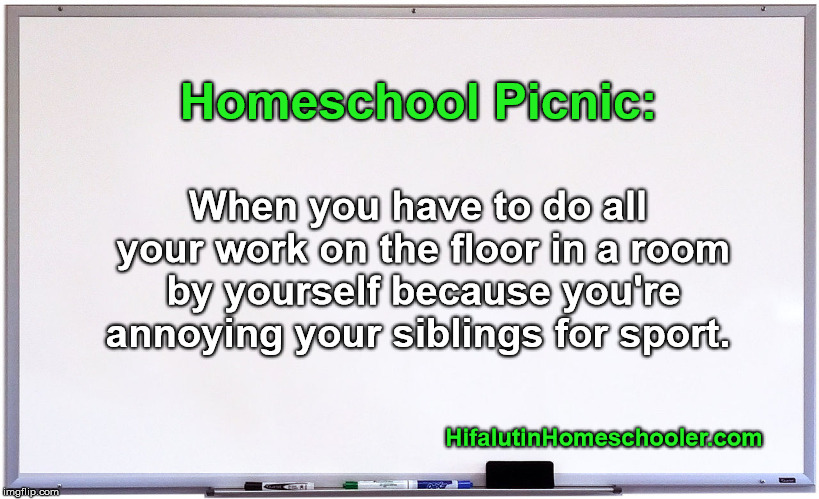
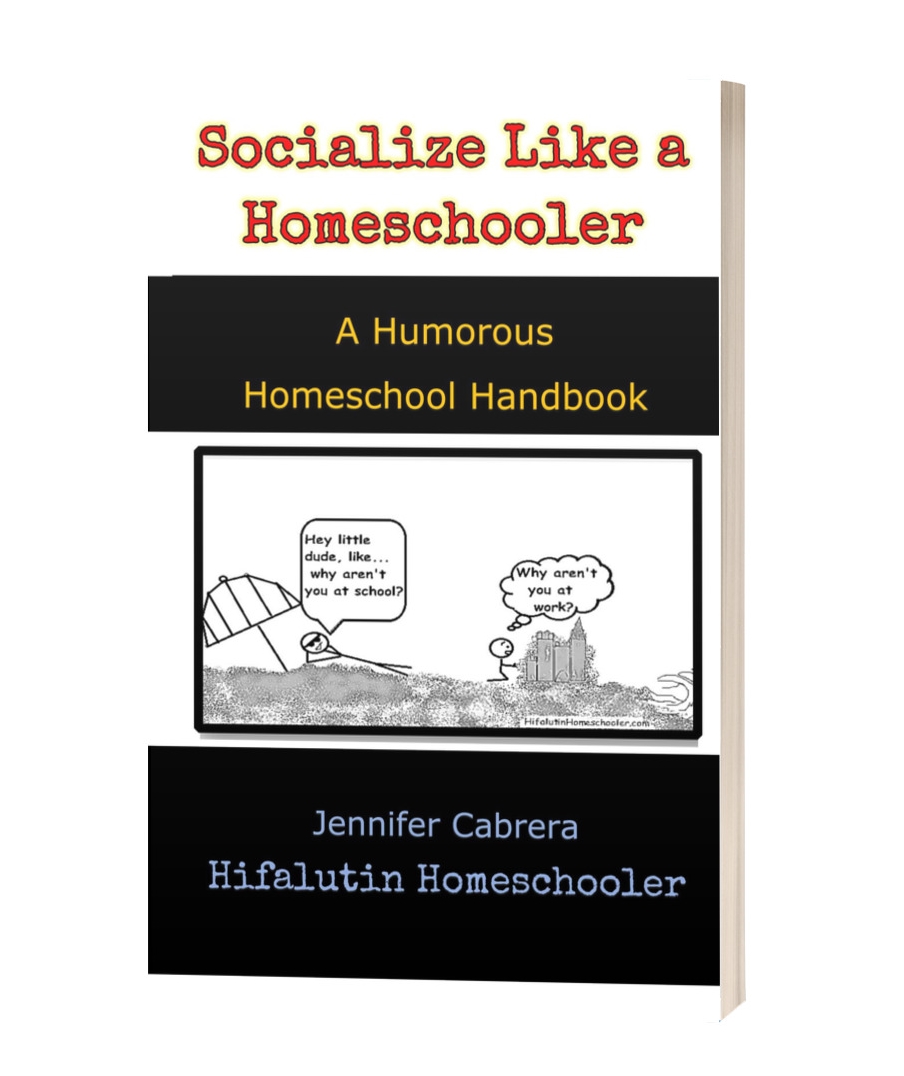





I also have researching curriculum as one of my favorite hobbies! I love to set up wish lists within wish lists. I also love the feeling of selling or passing on curriculum when I am finally done with it. It is the beautiful circle of homeschool life.
This has to be my favorite post yet!
I’m really tired. First time through, I read “Delight-Led Learning” as “Red Light Learning.” SIGH. Feel free to delete this comment.
Just read this while feeding my newborn and waiting for my little homeschoolers to get up and start the day. What a great read! Thanks for sharing!